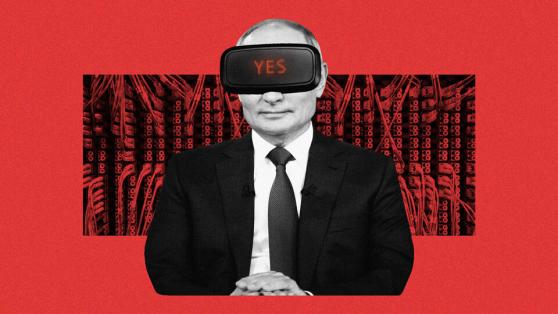Russia will be holding a major election of its State Duma — the lower house of that country’s legislative body, known as the Federal Assembly — on Friday, September 17 through Sunday, September 19th. The reason the voting will occur over a three-day span is to accommodate social distancing and limit crowd size as a result of the ongoing pandemic. The Russian Central Election Commission made that decision last July because the stakes of this upcoming election are so high.
As context, all 450 seats of the State Duma are up for grabs, with only 226 seats needed to have a majority. Currently, the United Russia (UR) party — which is the political party of Russian President Vladimer Putin — is in control of the State Duma with 336 seats or more than 70% of that house. However, security consultancy GardaWorld states in its most recent Russian Report that the two main political campaigns are drawing closer together at the polls.
Current polling data shows the UR has 34% of those surveyed, while the Communist Party of the Russian Federation (KPRF) has 30%. The report explains another layer of complexity in the Russian election system, where half of the seats in the State Duma are directly elected by their local voters and the other half is elected via the respective parties. According to the report, despite losing popularity nationally, due to its sheer size the UR is expected to win an overwhelming majority of those direct vote districts – enabling the UR to maintain control of the State Duma.
As previously stated, the voting will occur against the backdrop of the COVID-19 pandemic and record high levels of voter apathy in that country. Those two factors are likely to negatively impact voter turnout. However, the Russian government has introduced centralized, blockchain-based e-voting to enable remote ballot casting.
Last year, the Russian Central Election Commission intentionally launched the blockchain-based remote voting system before it was completely ready, most likely to give it a test run before this year’s national elections. The specific voting system developed was a private blockchain that was purpose-built by the government and its state-run telecommunications provider, Rostelcom. While this blockchain voting system was reportedly deployed successfully — albeit prematurely — in two smaller regional elections in September 2020, it’s unclear whether it can adequately scale to meet the demands and scrutiny of a national election with millions of voters.
Tangential to this upcoming election is a series of recent crypto-related bills being considered and new crypto-laws that directly impact Russian officials currently in office or running for office.
Those rules include:
- A recent bill introduced in May 2021 that would require office holders disclose any digital asset purchase over the past three years AND the source of those funds, which would then be crosschecked against their state salaries;
- A bill presented in February 2021 that would require all Russian residents, including those in elected office, report any crypto holdings once they exceed 60,000 rubles (approx. $8300 U.S.);
- An executive order by Putin that took effect in December 2020 requiring all Russian officials disclose any cryptocurrency holdings, utility tokens, or digital securities;
- A January 2021 decision by the Russian Ministry of Labor banning all officials from holding crypto and mandating the disposition of those assets.
On The Flipside
- Russia seems to have a dualistic view regarding blockchain and cryptocurrencies.
- Perhaps it’s not surprising that the aspects of blockchain that strengthen the position and control of the government are the attributes most supported.
Why You Should Care?
It will be interesting and telling to see the results of a national election run on blockchain. For instance, there are still large pockets of voters in the U.S. who claim Russians interfered with both the 2016 and 2020 elections, impacting those outcomes. Might Russia’s blockchain voting system be a forerunner solution to prevent its own meddling in other countries’ elections?
EMAIL NEWSLETTER
Join to get the flipside of crypto
Upgrade your inbox and get our DailyCoin editors’ picks 1x a week delivered straight to your inbox.
[contact-form-7] You can always unsubscribe with just 1 click.
